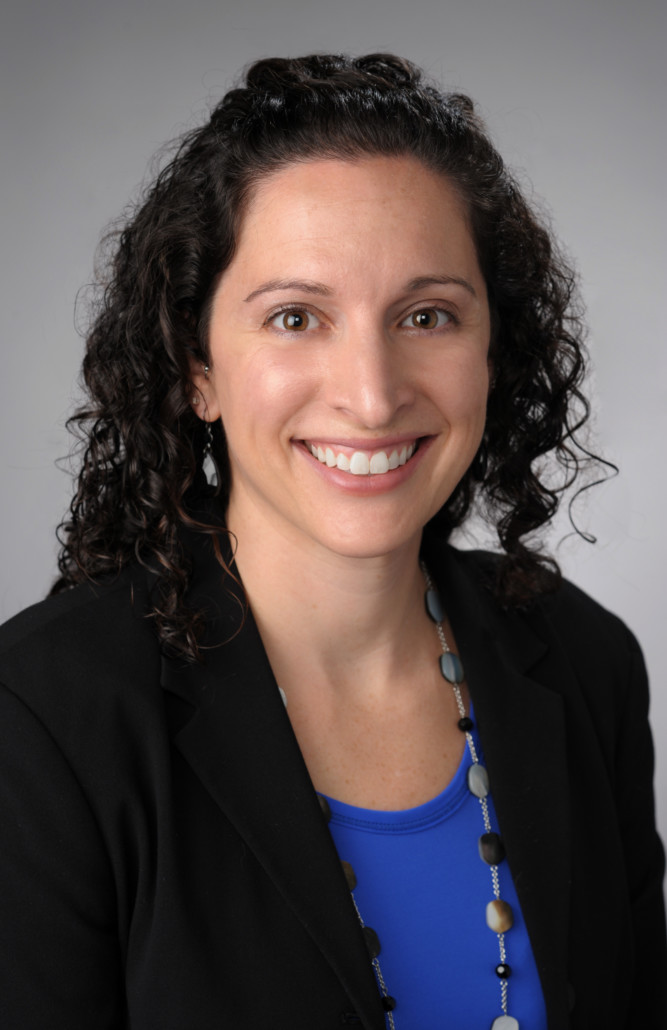The ASN Science Policy Fellowship is offered to advanced graduate students, early professionals, postdoctoral trainees, or medical interns, residents, or fellows. The intent of the Fellowship is to allow for an expanded understanding of current nutrition policy issues and initiatives. The Fellowship provides recipients with the opportunity to gain an enhanced perspective on public policy issues related to nutrition and facilitates the acquisition of skills and tools necessary to become well-informed advocates for nutrition research and policy.
Dr. Jessica Garay is one of two current fellows. Dr. Garay is an Assistant Professor in the Department of Nutrition and Food Studies at Syracuse University. She has been a member of ASN since 2018.

ASN: How did you first get involved in nutrition science and research? What led you to be interested in nutrition policy?
Dr. Garay: My first experience with nutrition research occurred as an undergraduate student at Cornell University. Working with Dr. David Levitsky, I conducted an intervention study for a senior honors project on the “Freshman 15” weight gain phenomenon. During my graduate work, I carried out research looking at the impact of the “Safe Routes to School” program on elementary school children’s physical activity levels, and long-term effects of fetal programming on adult health behaviors. Each of these research experiences reinforced to me that changes in policy (at any level) has the potential to affect health outcomes by influencing personal behavior. My interest in nutrition policy was initially stoked by my work at the Food Bank of Central NY along with advocacy opportunities within the dietetics profession. Over time, my interest in nutrition policy has continued to grow, and I am excited to learn more as an ASN Science Policy Fellow.
Tell us about your current position and the research activities in which you are involved.
I am an Assistant Professor in the Department of Nutrition and Food Studies at Syracuse University. I am currently conducting two grant-funded projects: one is an observational study of pregnant women to determine how stress, diet, and physical activity impact the risk of an adverse birth outcome; the second is comparing inflammatory biomarkers among physically active college females who are vegetarian or non-vegetarian. I also oversee several undergraduate and graduate research projects focused on nutrition and exercise science topics.
What do you feel are the biggest challenges facing nutrition researchers today?
In the nutrition field, we have constantly faced a battle between anecdotal evidence and scientific research. Social media continues to fuel this, and unfortunately, I think “influencers” who tout fad diets and certain food products are much louder than the evidence-based posts from nutrition researchers.
What influenced your decision to apply to the ASN Science Policy Fellowship program? How do you see yourself benefitting from this position?
I decided to apply for the ASN Science Policy Fellowship because I want to make a difference by effecting change on a large scale. I have seen the impact that a single voter can have by meeting with a legislator to discuss a specific issue. Through this fellowship, I hope to increase my knowledge of federal policies that relate to nutrition. I am looking forward to engaging with legislators regarding the need to support nutrition education, nutrition research, and food assistance programs in federal policies.
What aspects of ASN membership have you found most useful professionally?
As an ASN member, I benefit from the Research Interest Sections and the communication between members that takes place on ASN Connect. I also enjoyed the Nutrition 2020 virtual meeting, and look forward to a similar experience during Nutrition 2021.
Is there anything else you’d like to tell ASN members, especially students?
Policy can be an intimidating word, especially if we have not had much prior education or training. The good news is that no one is expecting us to be experts in policy – we are experts in nutrition, and we can contribute by sharing how legislation will impact our work.




